Grief, Ghosts, and Good Intentions
Heartworm is one of those games you really want to love. It’s got that grainy PS1 horror look, a lo-fi atmosphere dripping with melancholy, and a premise that promises something deep and psychological. It even opens like a lost Silent Hill demo from the late ’90s, full of static and fog and weirdly specific sadness. But after the first hour(s), you start to feel the cracks. It’s not bad—far from it—but it stumbles a lot on the way to what it’s trying to be.
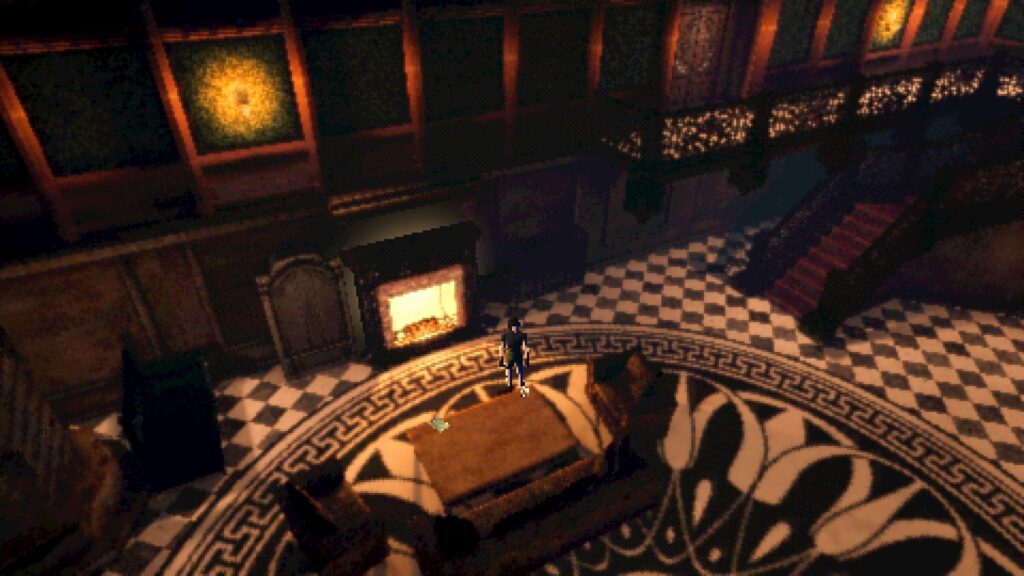
Tank(ing) Controls
Let’s talk about the negatives first. The controls are rough. You get the option between tank controls and modern movement, but neither feels particularly great. There’s a constant tug-of-war between how you want to move and how the game lets you move. Camera angles are fixed (on purpose, of course), but that doesn’t stop them from making basic navigation annoying. Combine that with some tight corners and weird interactions – it just feels short of feeling great.
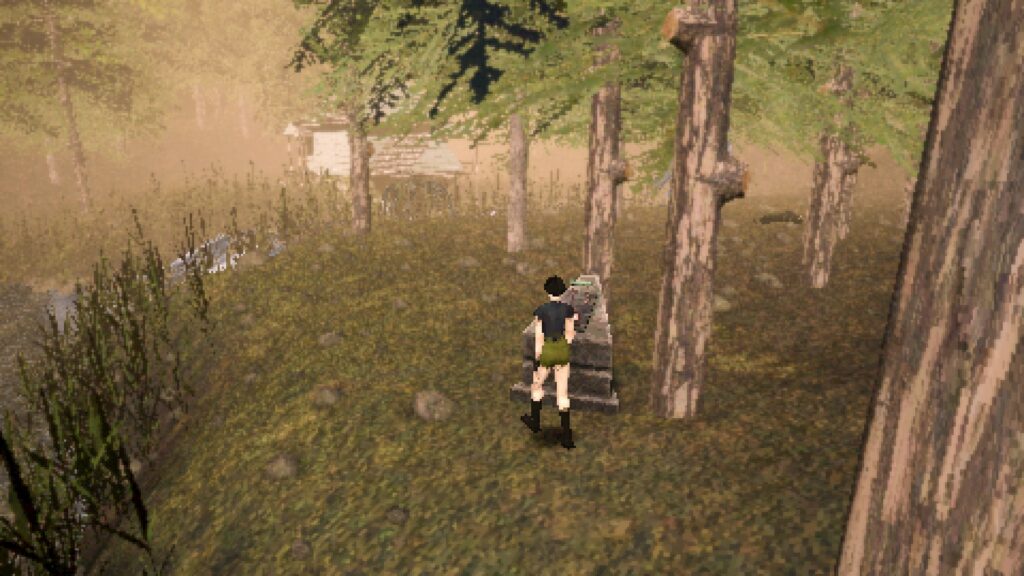
A Beautiful Place You’ll Visit Too Often
What Heartworm does well is mood. The environments are atmospheric and surprisingly detailed for such a small project. Old houses, foggy neighborhoods, surreal liminal rooms—they all feel like places you’ve visited in a dream. Or maybe a memory you’re not sure is yours.
But then comes the backtracking. A lot of it. You’ll find yourself looping through the same spaces over and over, not because something has changed or evolved, but because you need a key or a photo or a thing to progress. It starts to feel less like unraveling a mystery and more like running errands in a haunted suburb. It starts feeling less like a homage and more into – this-is-why-game-design-moved-away-from-this.

Mood Killer
Now here’s where it stings. Sam, the main character, is basically the only voice in the game. And that voice? Kinda flat. In a game so focused on one person’s grief, fear, and unraveling psyche, you really want the performance to sell it—but it just doesn’t. Most of the line reads come off as stiff or bored, which makes emotional moments feel awkward instead of haunting.
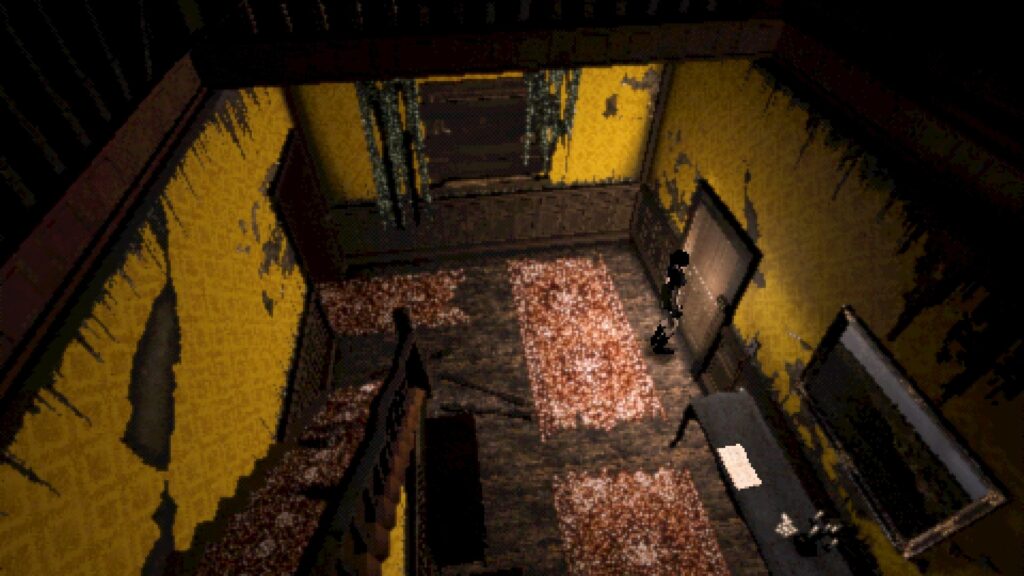
Simple Execution
The story itself is straightforward: Sam is dealing with the loss of her grandfather and finds herself obsessed with the idea of contacting the dead. She ends up at a mysterious house in the mountains tied to some weird online community. It’s a cool setup. There are hints of conspiracy, dream logic, and psychological breakdowns. You can tell it wants to say something deep about grief and obsession.
But it never really gets there. It flirts with existential themes and emotional trauma, but it doesn’t dig in. It feels more like the outline of a bigger, more layered narrative. The multiple endings don’t offer much variation either—they’re based more on secret items than your emotional or moral choices, which feels like a missed opportunity.
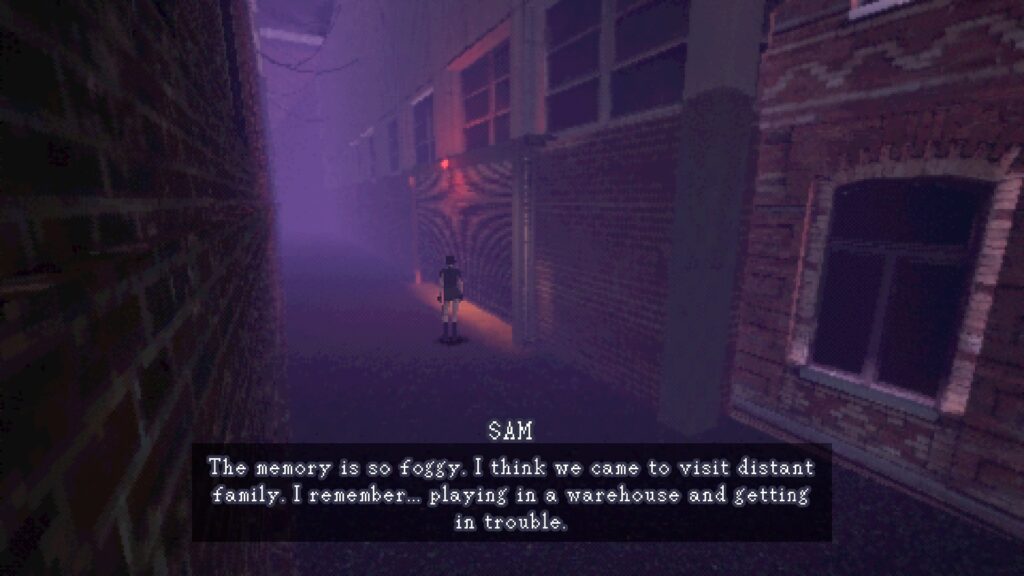
Not in a Fatal Frame Way
The big twist is that instead of a gun or knife, you use a camera to fight off enemies. It’s a nice metaphor—capture what scares you instead of destroying it—but it’s not particularly satisfying in practice. Enemies are slow, predictable, and easy to avoid. The camera mechanic is fine, but it never evolves. You just point, shoot, repeat.
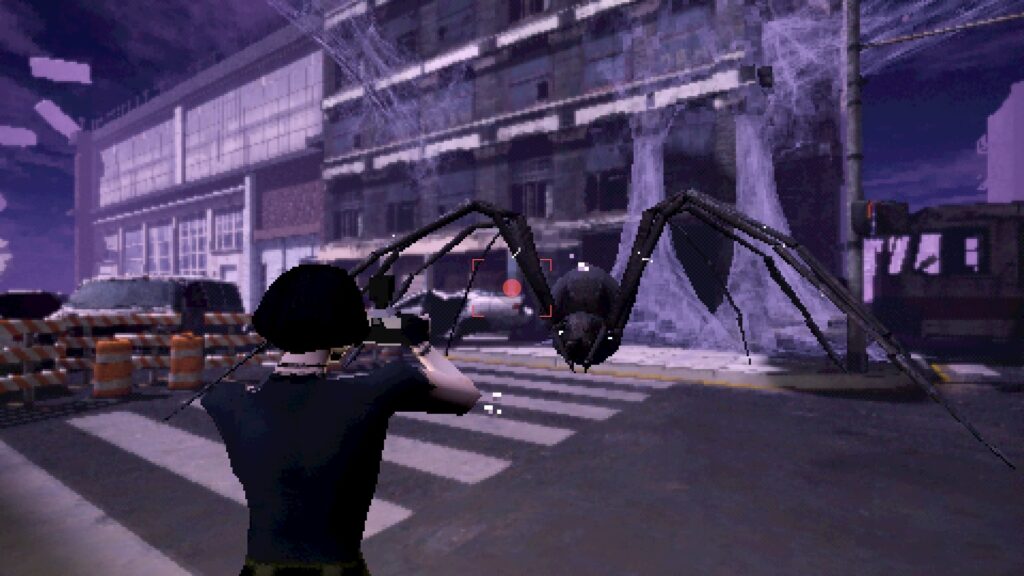
What It Gets Right
Despite the flaws, Heartworm nails its vibe. The lo-fi visuals, the VHS-style filters, the weird sound design—it all works to create a strange, unsettling world that feels like it exists more in memory than in reality. That’s probably the game’s biggest strength: it feels like a personal dream.
There’s this idea floating around the game that grief changes how you perceive the world—and Heartworm really leans into that. Rooms loop in on themselves. Hallways feel too long. Things don’t look quite right. It’s all very intentional, and it almost hits something profound.
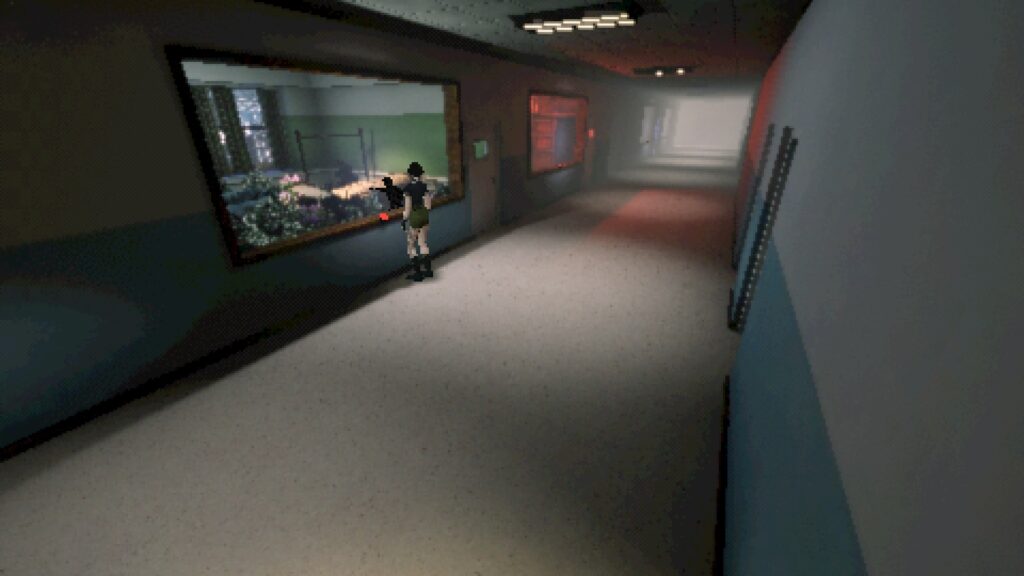
Final Thoughts
Heartworm isn’t the next Silent Hill, but that doesn’t mean it’s without value. It’s a flawed but interesting indie horror game that’s clearly made with a lot of care. The controls are clunky, the voice acting doesn’t land, and the story doesn’t reach the emotional depth it wants to. But there’s still something cool here—a kind of digital ghost story wrapped in nostalgic visuals and sincere (if slightly undercooked) storytelling.
Should you play it?
If you’re into lo-fi horror, old-school survival mechanics, and games that try to explore grief in weird, quiet ways, it’s worth checking out. Just go in with tempered expectations. Heartworm has heart—but it also has some rough edges.
For more interesting articles related to indie games, check out the links below.


